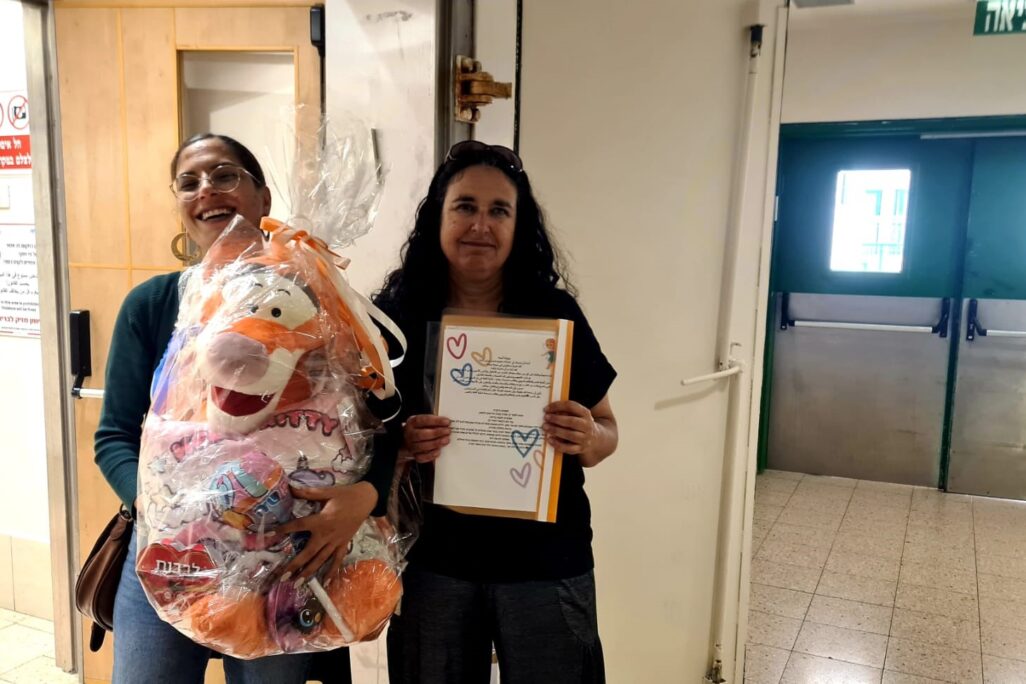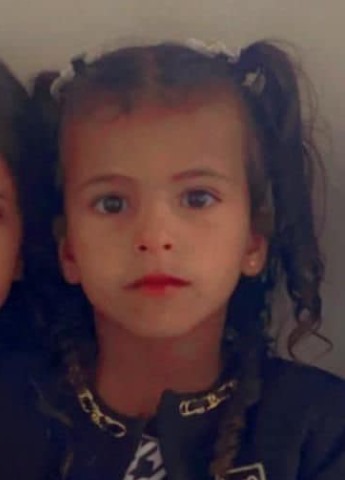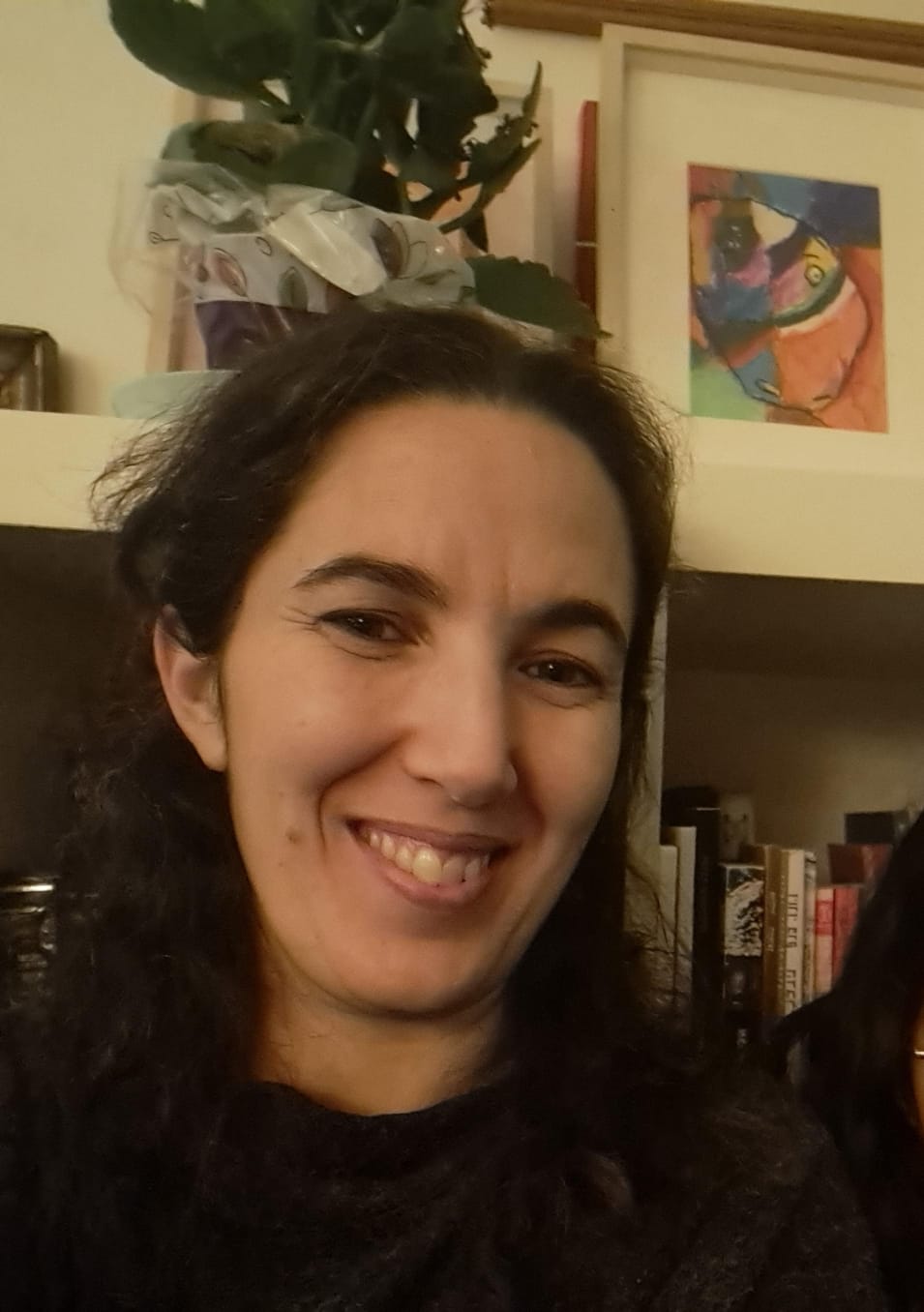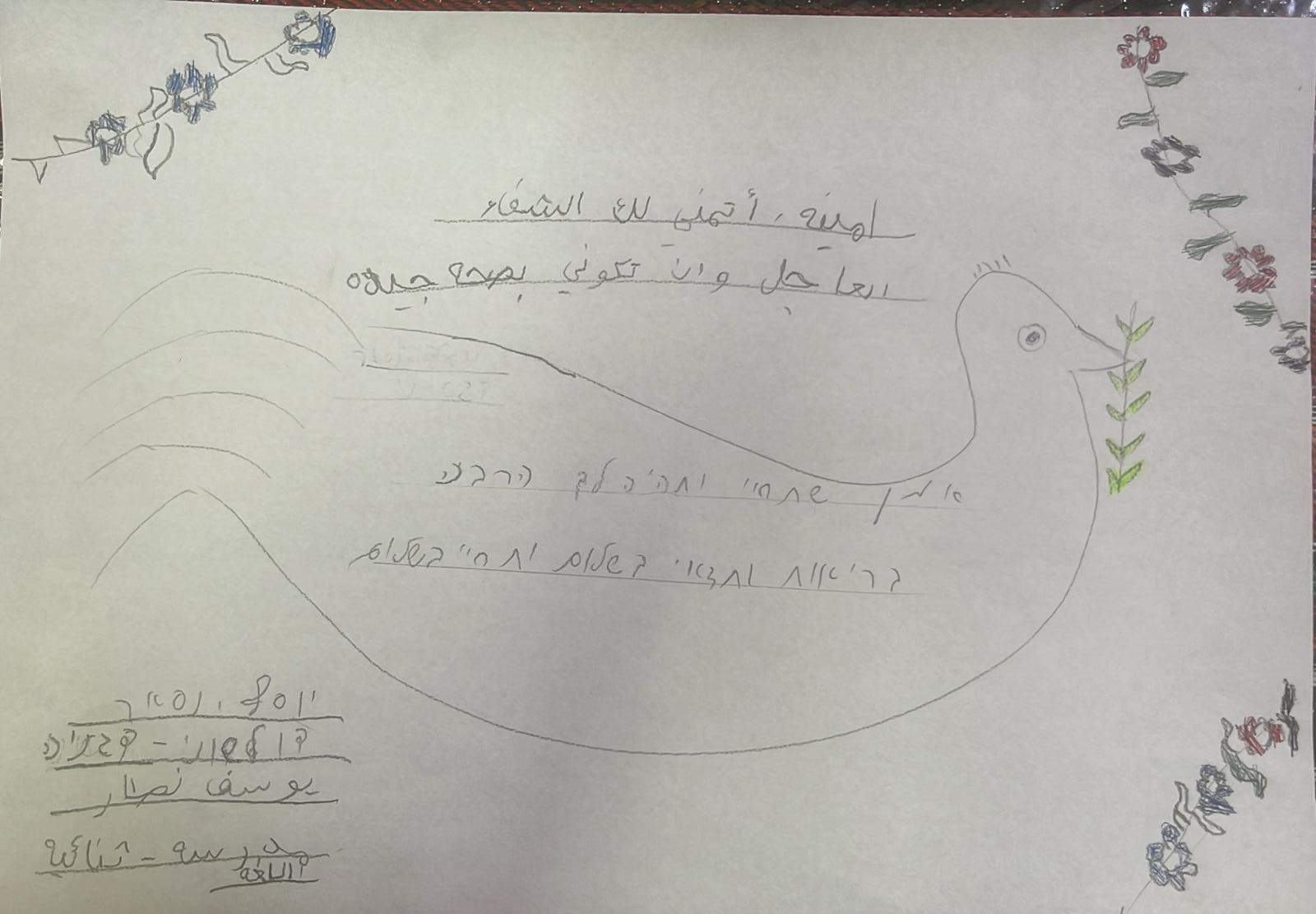
Students from a bilingual elementary school in Be’er Sheva went to the city’s Soroka Hospital late last month to visit Amina al-Hassouni, a 7-year-old Bedouin girl who was severely injured as a result of a missile and drone attack launched by Iran last month. The students from the Degania school prepared cards for al-Hassouni wishing her a speedy recovery and brought her a gift on behalf of the school's parents.

"Amina, I wish you a speedy recovery and good health," wrote Yosef Nassar, a fourth grade student. "Feel better!" wrote Ofek Faribash, a fifth grade student, in another letter. Most of the blessings were written in both Hebrew and Arabic.

"I want you to be very healthy, because I wish you health, and that you pass the check ups safely and successfully. I am so hurt that this happened to you. A speedy recovery," wrote third grader Wafa Shwamaria in Hebrew.
The chairwoman of the school's parents' committee, Oshrat Merin-Faribash, initiated the visit: "I saw that the only victim of the Iranian attack was a 7-year-old girl, and I have a weakness for children. I felt that this was the least we could do in relation to the fact that the injury could have been prevented if she had a shelter."
Maya Maimon, a third grade teacher in her first year at the school, contacted al-Hassouni's family. "Until last year I taught in Kuseife [a Bedouin town near where al-Hassouni’s family lives], and when I saw Amina's last name, it seemed familiar to me," she said. "I asked one of my friends who still teaches in Kuseife, and through her I made contact with the family."

Merin-Faribash spread word of the initiative to bring greetings and wishes from the school community on WhatsApp, and received enthusiastic responses. "The wishes were prepared by the children at the day camp that takes place these days at the school [during the Passover break]," she explained, "but also children who do not participate in the camp made them at home and sent them to their teachers."
According to Merin-Faribash, some parents were concerned about how to discuss events connected to Israel’s ongoing war against Hamas in an appropriate way for young children. "The school is from kindergarten to sixth grade. It makes sense that with younger children we won't necessarily go into the details."
Merin-Faribash and Maimon described the visit as a community gesture. "It was clear to me that we would do something as a community that advocates for coexistence and equality," said Merin-Faribash.

"The fact that we chose to do such an act even though Amina is not a student at the school proves how much we perceive ourselves to be responsible for the entire Negev" Maimon said. "The reality of not having access to a shelter during an alarm is not foreign to some of the children. They are not exposed to the news, so they were surprised that I told them about Amina and asked how she was. My role at the day camp was to strengthen Hebrew language skills, so I was happy that the task was to write letters, because it’s a great way to practice Hebrew, and for such an important purpose as encouraging Amina. The letters they wrote, they wrote from their hearts."
The Degania school said that they met with Nadia, Amina's mother, and gave her the gift with the letters. "We met a broken mother who was obviously not sleeping at night. She thanked us very much and said she would hand it over to Amina as soon as she woke up."
This article was translated from Hebrew by Nancye Kochen.






